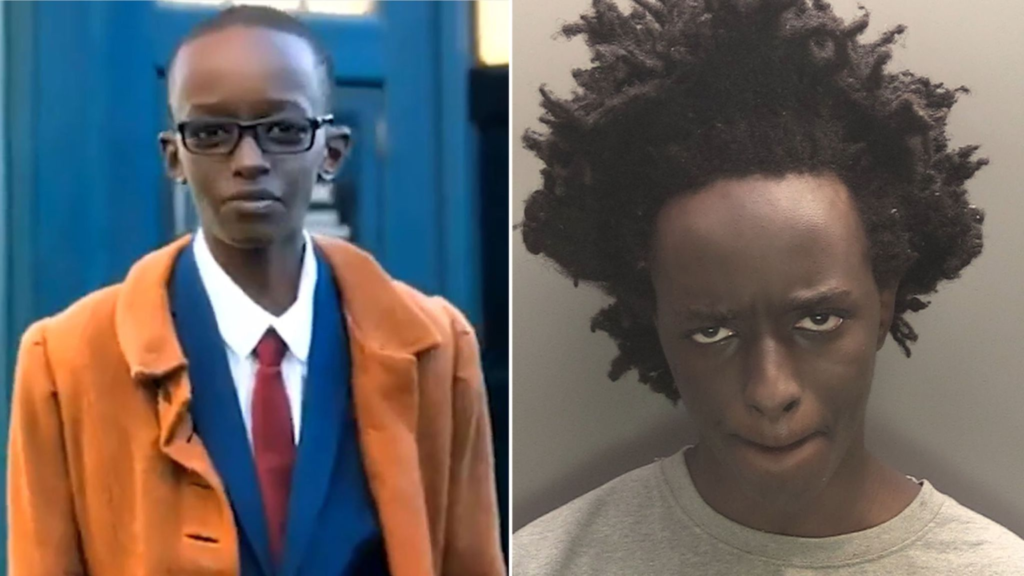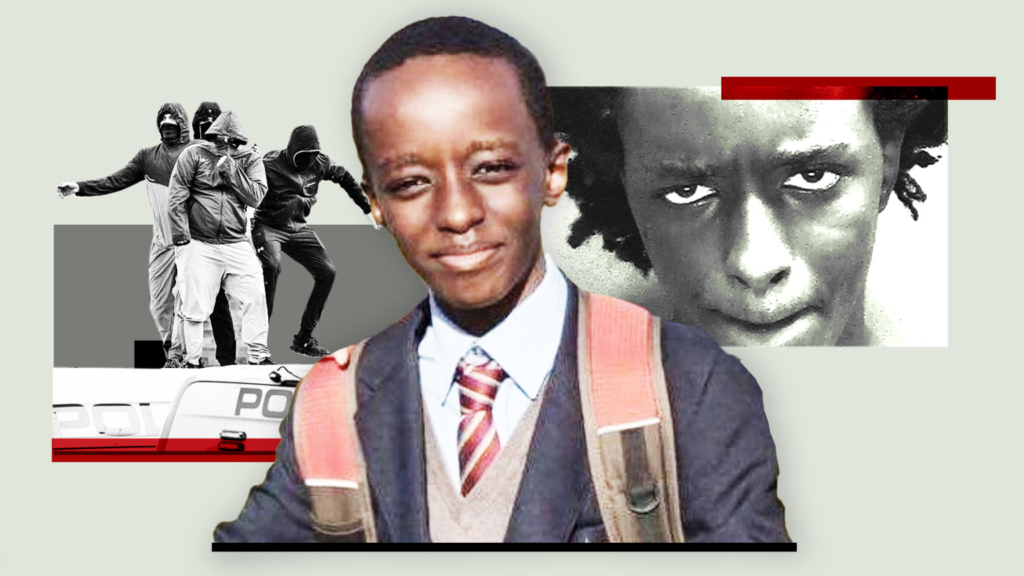The heinous crimes committed by Axel Rudakubana, a Southport teenager who was handed a life sentence with a minimum term of 52 years for the brutal murders of three young children, have sparked intense debate and concern within the House of Lords.
His actions, described as one of the most despicable criminal acts in recent memory, have reignited discussions on sentencing laws, particularly concerning juveniles, and the adequacy of the UK’s justice system in dealing with such extreme cases.
The Crime That Shook Southport
On July 29 last year, Southport was the site of a tragedy that shocked the nation. Axel Rudakubana, then just 17 years old, carried out a brutal attack during a children’s dance class, killing Alice da Silva Aguiar, nine, Bebe King, six, and Elsie Dot Stancombe, seven. The calculated nature of the attack and the vulnerability of the victims amplified the horror of the crime.
Despite being a teenager, Axel Rudakubana displayed behavior that had raised red flags for years. He had been referred to the Government’s anti-terror program, Prevent, three times before the incident, and six separate calls had been made to the police regarding his concerning actions. These warnings, however, did not prevent the tragedy.
Read : 18-Year-Old Southport Killer Axel Rudakubana Jailed for 52 Years for Murdering 3 Girls Under 9
In the wake of his conviction, Rudakubana was given one of the highest minimum terms ever recorded for someone of his age: 52 years. This sentence ensures that he will be in his seventies before he is eligible for parole. Yet, even with such a long minimum term, the possibility of Rudakubana eventually walking free has provoked widespread unease.
Sentencing Debate: Whole-Life Orders for Under-18s
The case has brought the UK’s sentencing framework into sharp focus. Conservative peer Lord Davies has called for a review of sentencing laws to allow whole-life orders to be given to those under 18 in exceptional cases. Speaking in the House of Lords, Lord Davies referred to the attack as “one of the most despicable criminal acts” he had ever encountered in his 32 years as a detective in London.
Read : Kenya is Planning to Kill 1 Million Indian House Crows in the Next Six Months
Lord Davies argued that Axel Rudakubana’s crimes warrant a whole-life sentence, regardless of his age. He highlighted the devastating impact of the murders on the victims’ families and the broader community, as well as the “legacy of mistrust” sown by such a heinous act.

However, current UK law, in accordance with the United Nations Convention on the Rights of the Child, prohibits whole-life sentences for individuals under 18. Lord Hanson, a Home Office minister, emphasized the government’s commitment to upholding these international obligations while ensuring justice for victims.
He pointed out that Axel Rudakubana’s 52-year minimum sentence reflects the severity of his crimes, even if it falls short of a whole-life order.
Crossbench peer Lord Hope cautioned against making sweeping legal changes based on a single, albeit extreme, case. He noted the challenges of defining criteria for whole-life orders that would apply universally and suggested that existing laws already allow for sufficiently severe punishments in cases of extreme criminality.
Prevent and the Need for Systemic Reform
Another critical aspect of the debate centers on the Prevent program and its role in identifying and addressing potential threats.
Despite multiple referrals to Prevent and numerous reports to the police, Rudakubana’s descent into violence was not halted. This failure has led to calls for a comprehensive review of how such programs operate and whether they are adequately equipped to deal with individuals like Axel Rudakubana.
Baroness Suttie, a Liberal Democrat peer, stressed the importance of a public inquiry to understand how warning signs were missed. She highlighted the need for lessons to be learned to prevent similar tragedies in the future.
The inquiry, she argued, must examine the effectiveness of multi-agency teams and the communication between different organizations tasked with monitoring individuals at risk of radicalization or violent behavior.

A particularly contentious issue is the distinction between individuals motivated by ideology and those driven by psychological disturbances. Baroness Suttie questioned whether people like Axel Rudakubana, who may not be ideologically driven but pose a significant danger to society, should be treated differently under programs like Prevent.
Neil Basu, the former head of counter-terrorism at the Metropolitan Police, has called for an expansion of Prevent to include non-terrorist cases involving individuals with extreme violent tendencies.
He argued that a “Prevent for non-terrorists” program is necessary to address the growing threat posed by such individuals. However, this approach would require significant resources and could risk diverting counter-terrorism officers from their core tasks.
Balancing Justice and Public Confidence
The Southport tragedy has highlighted the complexities of balancing justice, public safety, and the rights of offenders. While the legal system aims to hold individuals accountable for their actions, it must also consider broader societal implications and adhere to international conventions.
The possibility of Rudakubana eventually being released, even decades from now, raises profound moral and practical questions. Lord Davies argued that public confidence in the justice system could be undermined if someone capable of such monstrous crimes is ever allowed to reintegrate into society.
Yet, others caution against reactionary changes to the law. Lord Hope’s warning about the risks of overhauling sentencing rules based on a single case underscores the importance of careful deliberation. Changes to the law would have far-reaching consequences and could affect a wide range of cases beyond the most extreme examples.
The debate also touches on broader issues of integration and community cohesion. Lord Hanson acknowledged the complexities of Rudakubana’s background, noting that he was a British-born citizen.
This challenges simplistic narratives about the causes of such crimes and highlights the need for a nuanced understanding of the factors that contribute to extreme violence.

As the public inquiry unfolds, it is expected to shed light on the systemic failures that allowed Rudakubana’s violent tendencies to go unchecked. The findings will likely inform future policies on Prevent and other programs aimed at identifying and mitigating threats.
The Southport case serves as a grim reminder of the devastating impact of violent crime and the challenges of ensuring justice in its aftermath. It has sparked a necessary, if difficult, conversation about how society should respond to its most heinous offenders, particularly when they are young.
While opinions differ on whether the law should be changed to allow whole-life sentences for under-18s, there is consensus on the need for a robust justice system that protects the public, supports victims, and prevents similar tragedies in the future.
The debate in the House of Lords reflects the complexities of these issues and the difficult balance that must be struck between punishment, rehabilitation, and the rights of individuals.
The outcome of this debate and the public inquiry will have significant implications not only for the families of the victims but also for the broader public’s confidence in the UK’s ability to address the most extreme forms of criminality.

